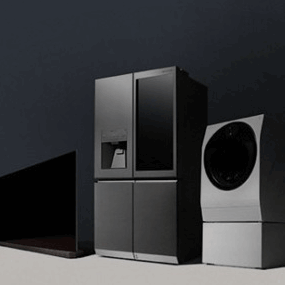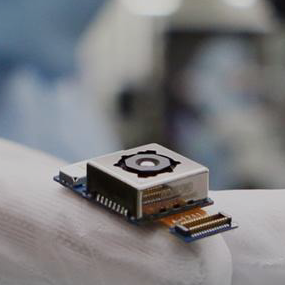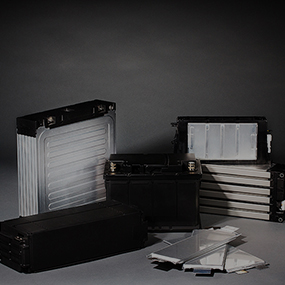3,500 Automotive Patents in 5 Years LG Innotek Eyes Market Leadership with Advanced Mobility Technology
2024.09.13■ Automotive component patents account for nearly 40 percent of LG Innotek’s patent applications, including LiDAR, Automotive camera modules, Lighting systems, and Communication modules.
■ Registration of 5 EVCC standard essential patents, securing technological advantage in EV communication and charging control technologies.
■ Collaboration with domestic and international standardization organizations to take part in next-generation mobility component standardization activities.
LG Innotek is committed to enhancing its competitiveness in patents through its advanced technology in the field of advanced mobility, including electric and autonomous vehicles. Based on this, its strategy is to take the lead in the global automotive component market.
LG Innotek (CEO Moon, Hyuksoo) announced on September 5, 2024, that it has filed a total of 3,500 patents related to automotive components over the past five years.
To drive growth in the automotive component business, which is a new growth engine, the company has consistently focused on pioneering the development of core technologies every year and increasing the proportion of its patents in automotive components. As a result, automotive components accounts for nearly 40% of all the company’s patent applications.
Among automotive components, LG Innotek is particularly focusing on rapidly expanding its patent applications in the field of advanced vehicle technologies, including LiDAR (light detection and ranging), Automotive camera modules, Lighting systems, and Communication modules.
Furthermore, the company is also intensifying its efforts to secure Standard Essential Patents(SEPs) leveraging its advanced technology in the field. Recently, it successfully has listed five SEPs for the Electronic Vehicle Communication Controller (EVCC).
SEPs are patents for technologies that are essential in the implementation of standard specifications set by standardization organizations, such as the ISO (International Organization for Standardization) and IEC (International Electrotechnical Commission).
A company that holds a SEP can establish a technological advantage in its field and expand market dominance. In addition, SEP can also generate royalties revenue. LG Innotek thus expects to increase its market share in the areas of electric vehicle communication and charging control as well as generate additional income from royalties.
The five technologies listed as a SEP include four technologies that determine the vehicle charging mode using communication channels and one technology for controlling battery charging. LG Innotek also secured three international SEPs for the EVCC last year. There are only eight companies in the world, including GE and Siemens, that hold international SEPs for EV charging.
LG Innotek is also actively engaging in domestic and international activities to establish standards for key components of advanced vehicles.
The ISO’s international standardization for LiDAR is currently underway, and LG Innotek experts designated by the Korean Agency for Technology and Standards are taking part in the process as core members. In Korea, the company is collaborating with the Korean Standards Association and leading the national standardization process for next-generation mobility technologies, including autonomous cameras and in-vehicle communication.
LG Innotek Chief Technology Officer S.David Roh stated, “Our automotive component technology is rapidly expanding its global influence, driven by our stronger patent competitiveness and participation in standardization activities in the field of advanced mobility.” He added, “We will continue to secure technological and patent leadership so that we can build a competitive edge in the global automotive component market.”
[Terminology]
■ Electronic Vehicle Communication Controller (EVCC)
The Electronic Vehicle Communication Controller (EVCC) is a component that controls the communication between an electric vehicle and its charging device. It enables the exchange of information, such as voltage, current, and battery level, during the charging process.














